CCT 2024 Ideathon
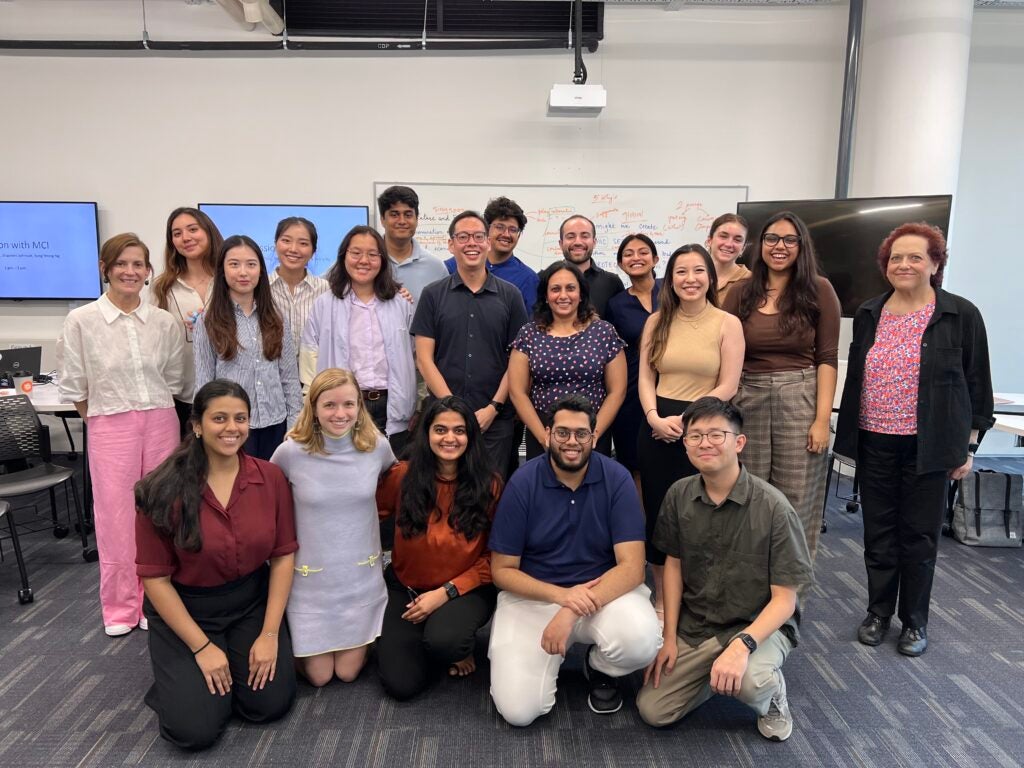
The Georgetown University x NTU Ideathon, held in Singapore, was an ambitious collaborative initiative involving Georgetown University’s Communication, Culture, and Technology (CCT) program, the Georgetown Tech Policy Initiative (GTPI), and the Tech & Public Policy Program (TPP) at the McCourt School of Public Policy. This event was designed to bring together students, experts, and policymakers from across the globe to tackle emerging challenges at the intersection of technology, law, and society. Ideathon 2024 was led and organized by CCT students Mac Milin Kiran and Dhriti Gupta, who orchestrated the event after the success of Ideathon 2023.
The Ideathon is a global endeavor, a testament to the power of collaboration that leverages the diverse expertise of participants worldwide. This year, the strategic partnership with Nanyang Technological University (NTU) in Singapore played a crucial role in enriching the event, integrating varied academic perspectives and technological insights, and fostering a rich innovation and policy development environment.
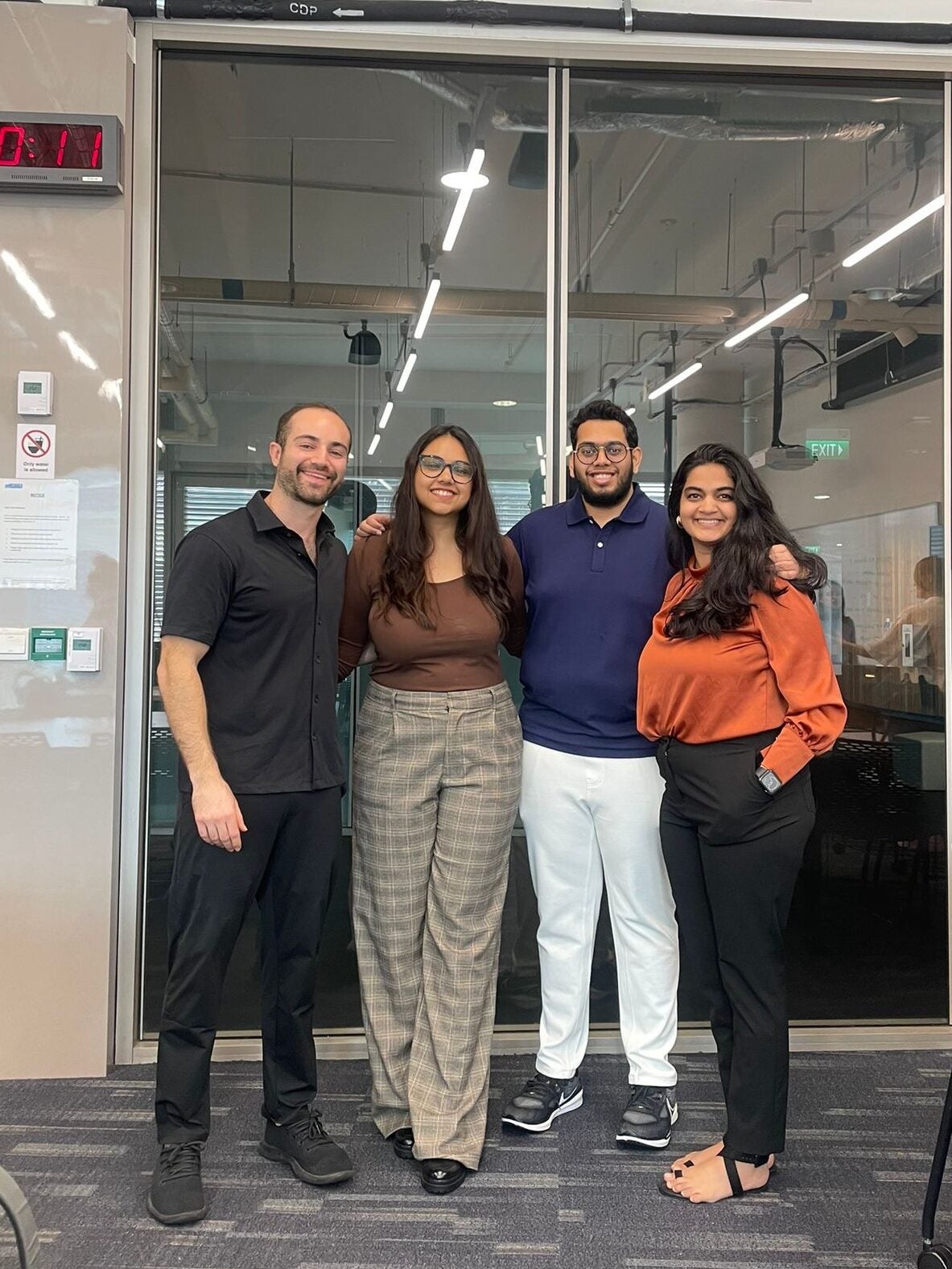
The Ideathon was a melting pot of diverse backgrounds, including seven Georgetown students from CCT, Public Policy, and Law, alongside eight NTU students from technical disciplines such as Computer Science, Mechanical Engineering, and AI. This diversity ensured that solutions were approached from both a policy-oriented and a technical perspective, showcasing a true interdisciplinary spirit.
The primary challenge posed at the Ideathon revolved around “Pandora’s Algorithm,” a hypothetical advanced AI designed to personalize social media content but exploited to perpetrate financial scams targeting vulnerable populations. Participants were tasked with developing innovative solutions to detect and mitigate the impact of these AI-generated scams, combining technical tools with strategic policy interventions. The participants developed a comprehensive strategy that seamlessly integrated AI detection tools, public awareness initiatives, and policy recommendations. This approach aimed to mitigate the immediate threat of financial scams and foster a broader understanding and resilience within the community against such digital threats.
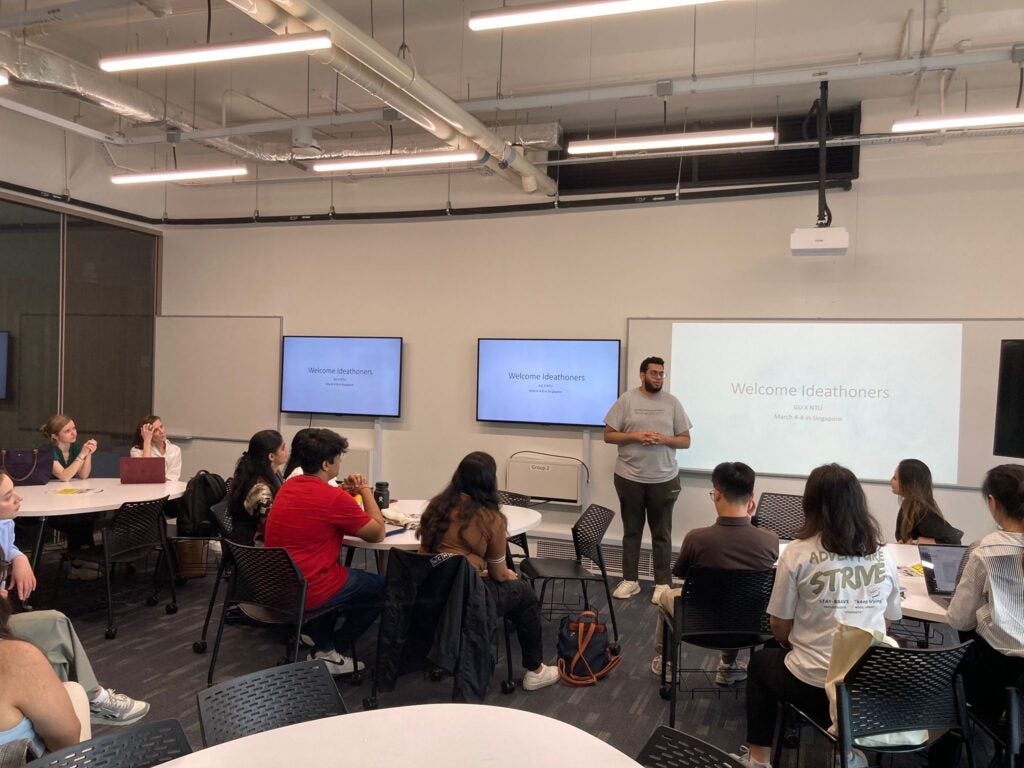
Mac Milin Kiran, an NTU alumnus, was pivotal in establishing and nurturing partnerships with his alma mater and key governmental agencies in Singapore, such as the Ministry of Communications & Information and GovTech Singapore. His efforts also extended to integrating diverse perspectives through engagements with various experts and organizations like the Future of Privacy Forum, Google, and the Tech for Good Institute. These interactions enriched the Ideathon with valuable learning and mentorship opportunities, directly influencing the quality and depth of the discussions and outcomes.
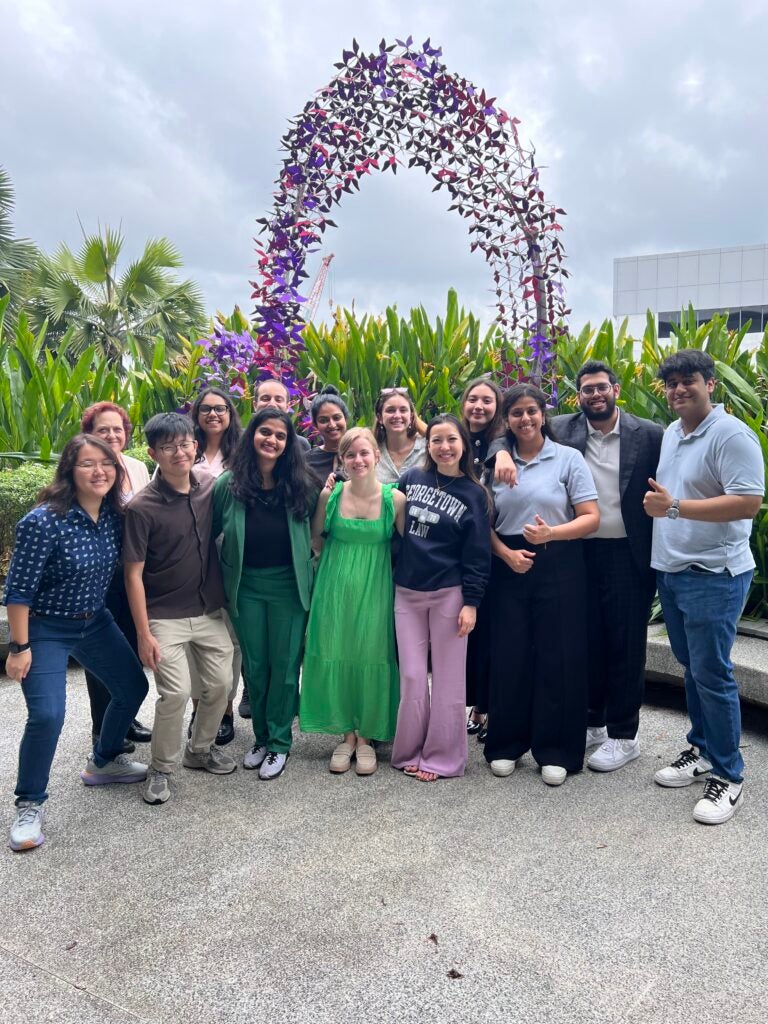
Dhriti Gupta, another CCT student, facilitated brainstorming sessions during the event. She helped the Georgetown and NTU students synthesize and develop cohesive project ideas. Her guidance enabled effective teamwork and idea generation among the participants.
The student participant team included CCT students Zach Ferry and Kunjika Apurvabhai. Their diverse skills and perspectives were instrumental in the event, exemplifying the hands-on, interdisciplinary approach encouraged within the CCT program and showcasing the collaborative spirit of the Ideathon.
Reflecting on her experience, Kunjika said, “My one goal at CCT and for grad school at large was to learn more creative problem-solving and not just problem-identifying. The Ideathon was a fabulous experience for many different reasons, including the cross-cultural exchange of knowledge and, most importantly, solving a complex challenge through interdisciplinary solutioning. Working across our interests in communication, design, computer science, and policy, we developed a creative and accessible solution.”
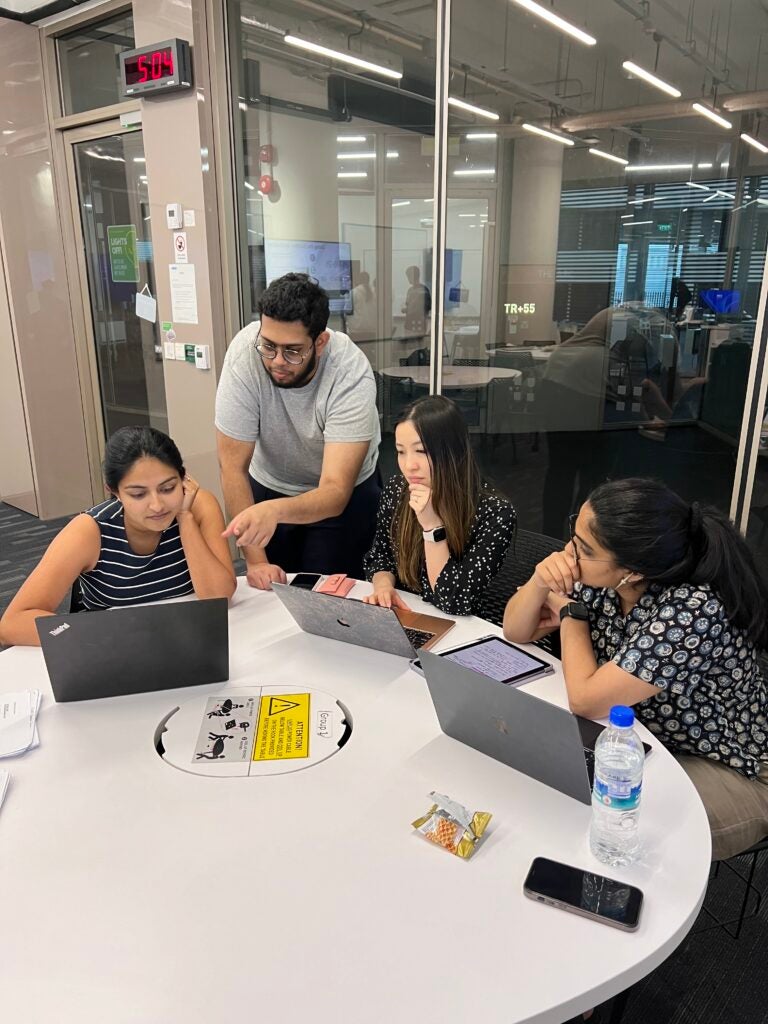
A pivotal element of the Ideathon was the mentorship and advisory session led by Dr. Meg Leta Jones from the CCT faculty. Her guidance was instrumental in shaping the students’ approach to the ethical, legal, and socio-technical dimensions of the technology involved. Dr. Jones’ expertise in tech law and policy greatly enhanced the students’ ability to craft nuanced and effective policy frameworks, ensuring that their solutions were grounded in a comprehensive understanding of the technological and regulatory landscapes.
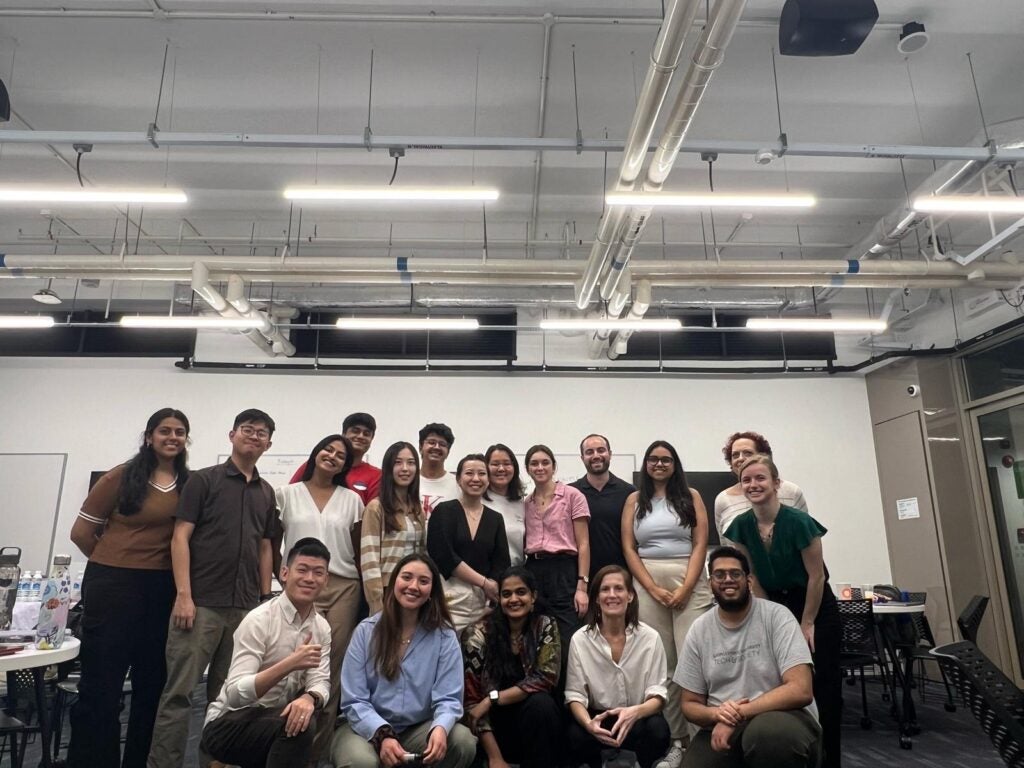
The success of this Ideathon, a true testament to the power of student-led initiatives, has set a robust foundation for future iterations of the program. It establishes a model for how academic collaborations can foster practical, impactful learning experiences. The outcomes achieved here—spanning technical solutions, policy development, and community engagement—serve as a testament to the value of integrating CCT principles into real-world challenges. The initiative provided students with invaluable hands-on experience and advanced Georgetown’s commitment to nurturing future leaders equipped to navigate and shape the increasingly complex intersection of technology, culture, and policy.